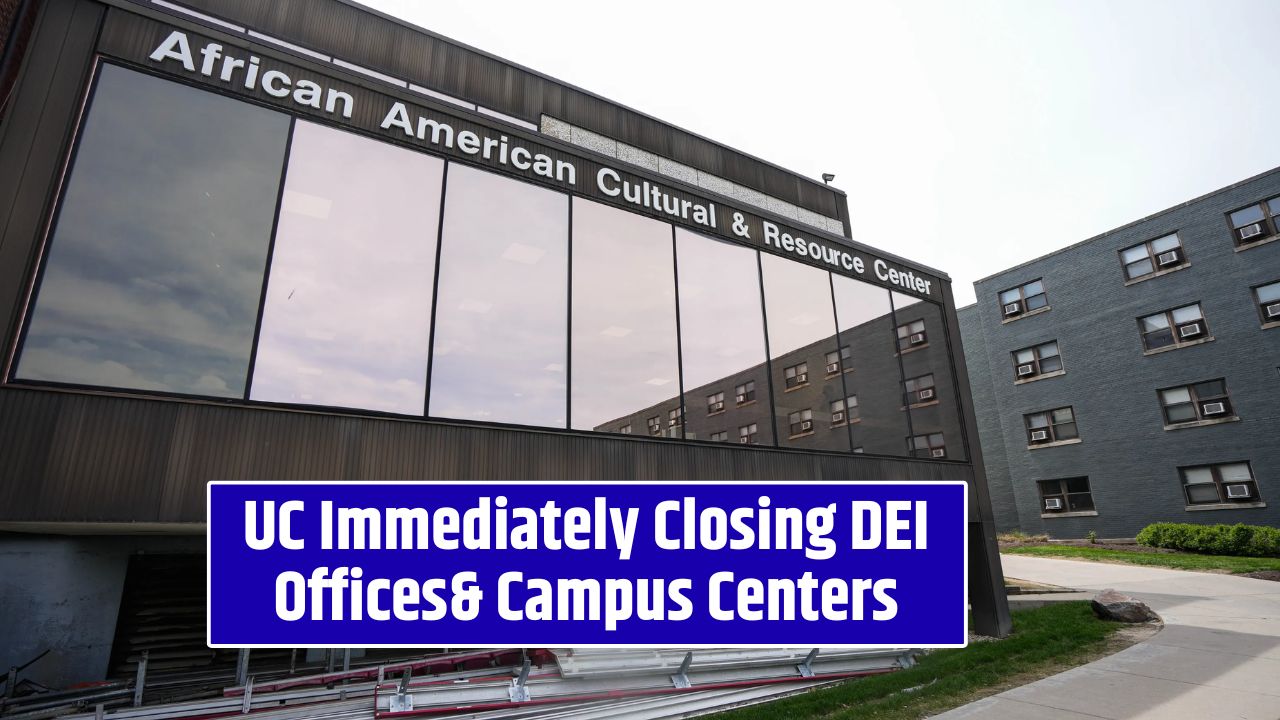The University of Cincinnati is undergoing significant changes to its campus culture and student services in response to Ohio’s Senate Bill 1, a controversial piece of legislation set to take effect this week. The bill mandates the elimination of diversity, equity, and inclusion (DEI) programming at public colleges and universities and places new limits on faculty labor rights, including banning strikes.
Table of Contents
University of Cincinnati Shuts Down DEI Offices
In compliance with Senate Bill 1, UC trustees approved sweeping changes to the university’s DEI policies. President Neville Pinto announced that the university’s Equity & Inclusion Office, along with four student identity centers—the Ethnic Programs & Services, LGBTQ Center, Women’s Center, and the African American Cultural & Resource Center—will be shuttered immediately.
The African American Cultural & Resource Center will be renamed “The Cultural Center”, with a broadened mission to support all students, rather than focusing on specific identities. The Center for Student Involvement will take over the space previously used by these identity-based offices, consolidating campus support services under a more general umbrella.
The Impact of Senate Bill 1
Senate Bill 1, backed by Ohio’s Republican-controlled legislature, is part of a broader national effort to limit or ban DEI programs at public institutions. The law also includes a ban on faculty unions going on strike and introduces additional oversight into campus operations. Proponents argue the law promotes equal treatment by removing identity-based policies they claim are discriminatory or politically biased.
However, critics argue the legislation seeks to silence marginalized voices and eliminate safe spaces for underrepresented student groups. Opponents also see the anti-DEI measure as a politically driven attempt to stifle academic freedom and whitewash historical and social realities in curriculum and campus life.
Student and Faculty Response
The law and UC’s response have sparked ongoing protests and intense campus debate. In February, hundreds of students and faculty marched to a Board of Trustees meeting, urging university leaders to resist what they viewed as a politically motivated attack on diversity and inclusion. That protest ended the meeting early due to disruptions, and since then, trustees have moved their regular meetings off-campus to the Digital Futures building, roughly a mile from the university’s main campus.
Critics say this relocation is an attempt to avoid student backlash and limit access to public meetings. On Tuesday, audience members expressed frustration over the trustees’ absence from the main campus, accusing the university of suppressing student engagement.
The Bigger Picture: Politics, Policy, and Campus Life
UC’s rapid restructuring reflects how higher education institutions are being drawn into the center of national political battles. Across the country, Republican lawmakers are targeting DEI programs, critical race theory, and what they see as ideological overreach on campuses.
For institutions like the University of Cincinnati, compliance means not just changing policies but fundamentally altering the student support ecosystem. Identity centers often provide not just social programming, but also academic support, crisis counseling, and community for students from underrepresented backgrounds. Their closure marks a dramatic shift in what public universities can offer under state law.
As the policy takes effect, UC students and faculty face uncertainty over what kind of community their campus will now foster—and whether other universities in Ohio will follow the same path.
FAQs:
What is Senate Bill 1?
Senate Bill 1 is a new Ohio law banning DEI programming at public colleges and prohibiting faculty strikes, among other education reforms.
Which UC offices are affected?
The Equity & Inclusion Office, Ethnic Programs & Services, LGBTQ Center, Women’s Center, and African American Cultural & Resource Center will all close.
What replaces these offices?
The Center for Student Involvement will take over their physical spaces, and the African American Cultural & Resource Center will be renamed “The Cultural Center.”
























